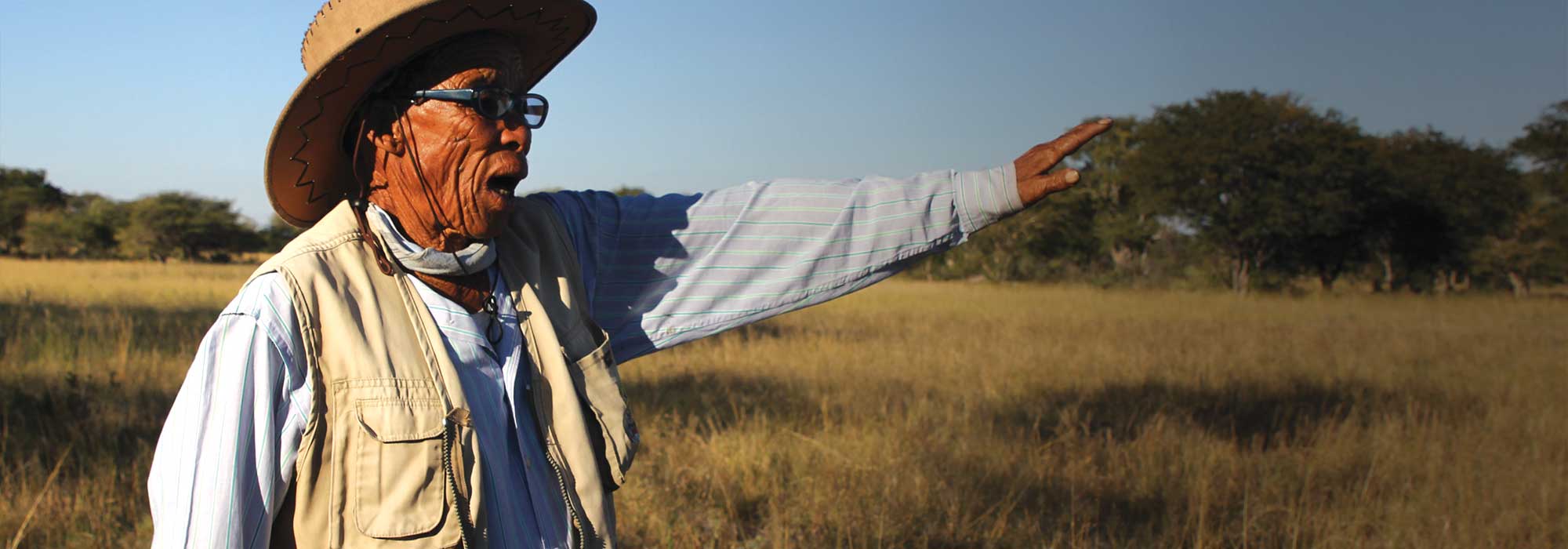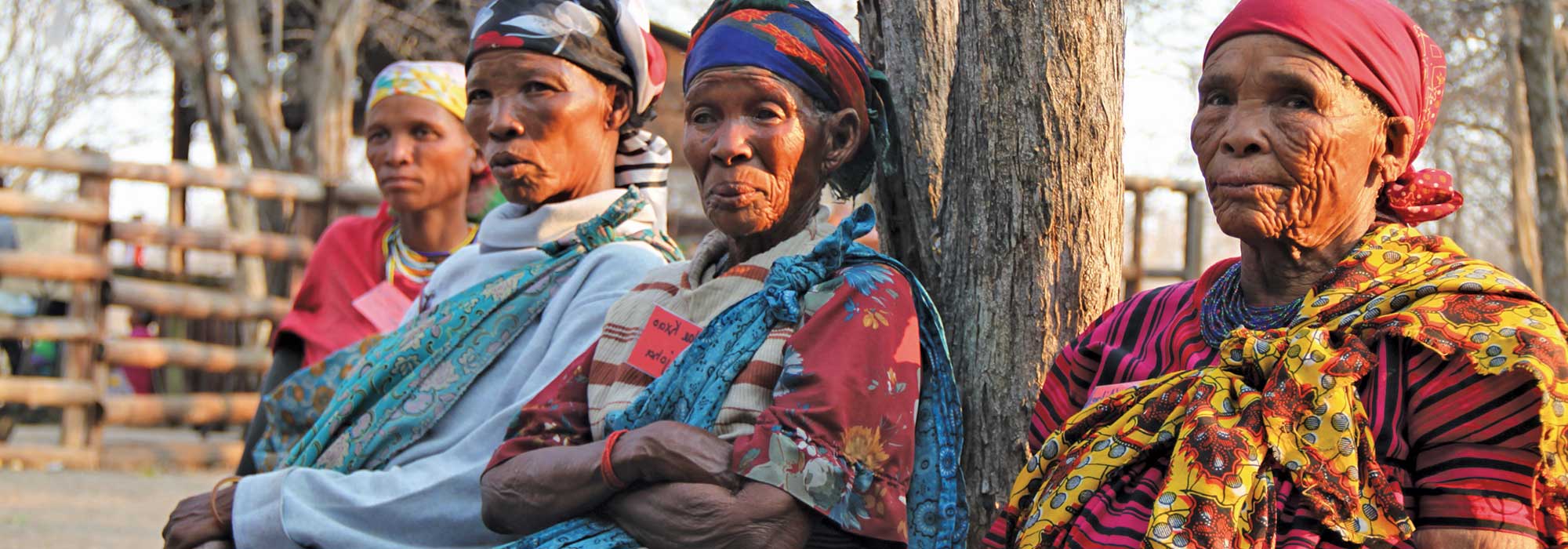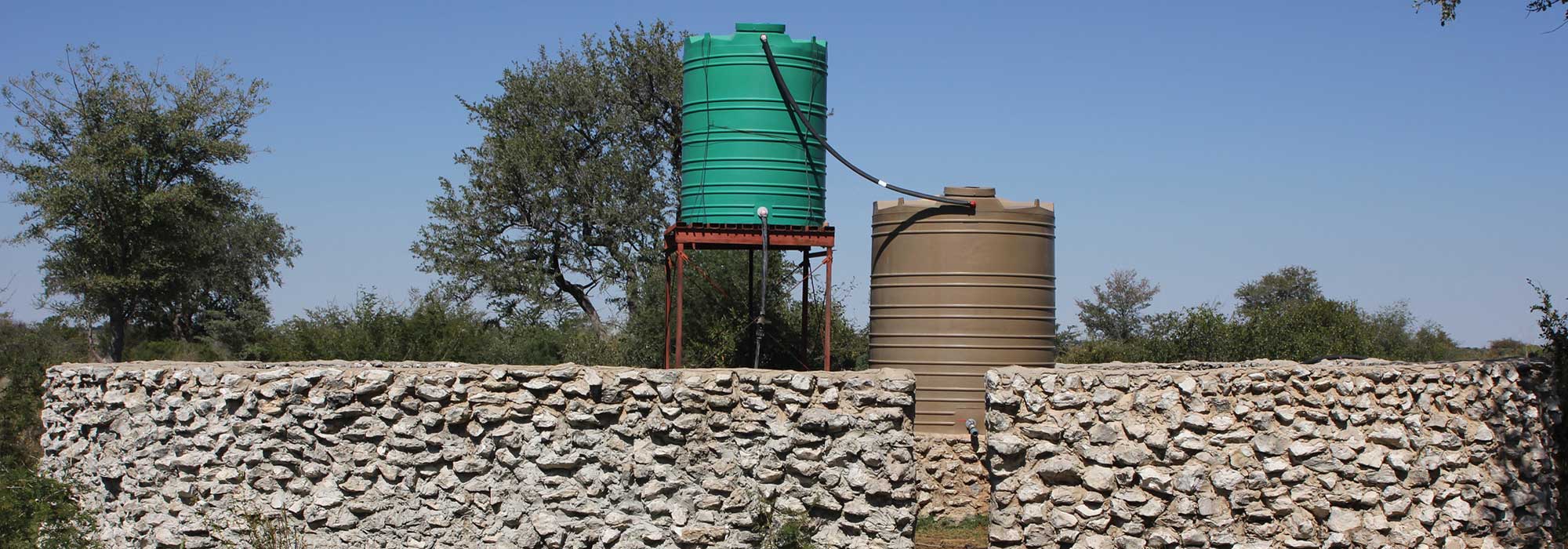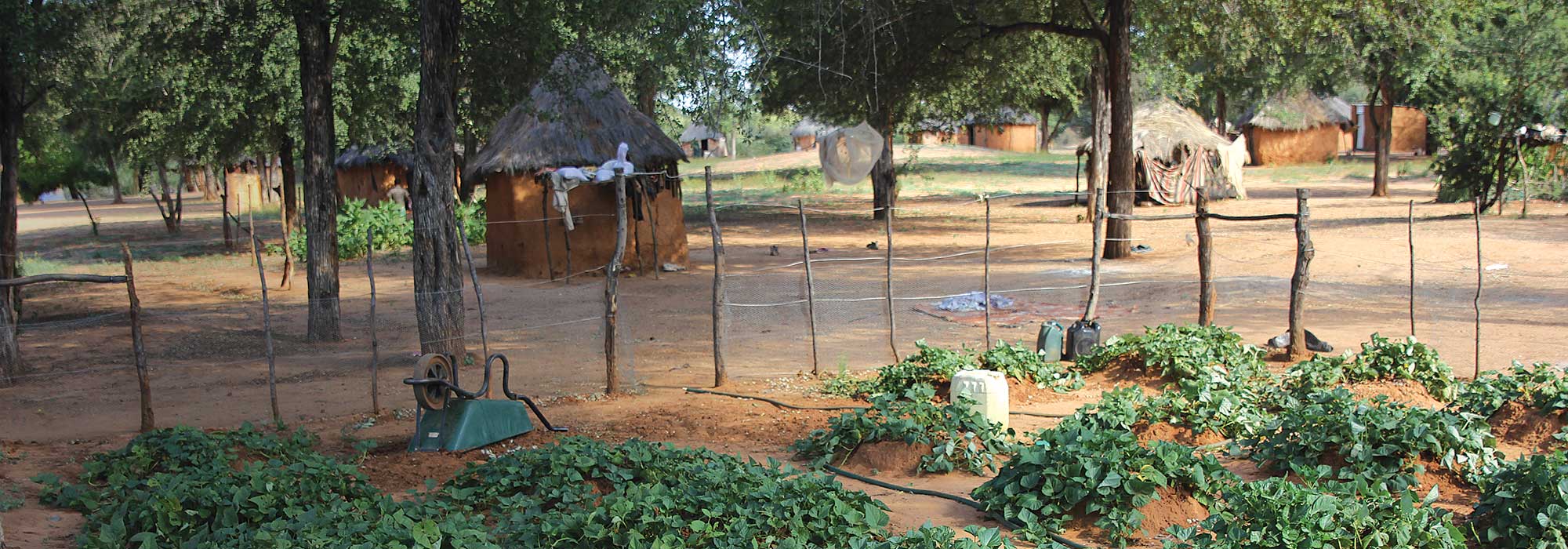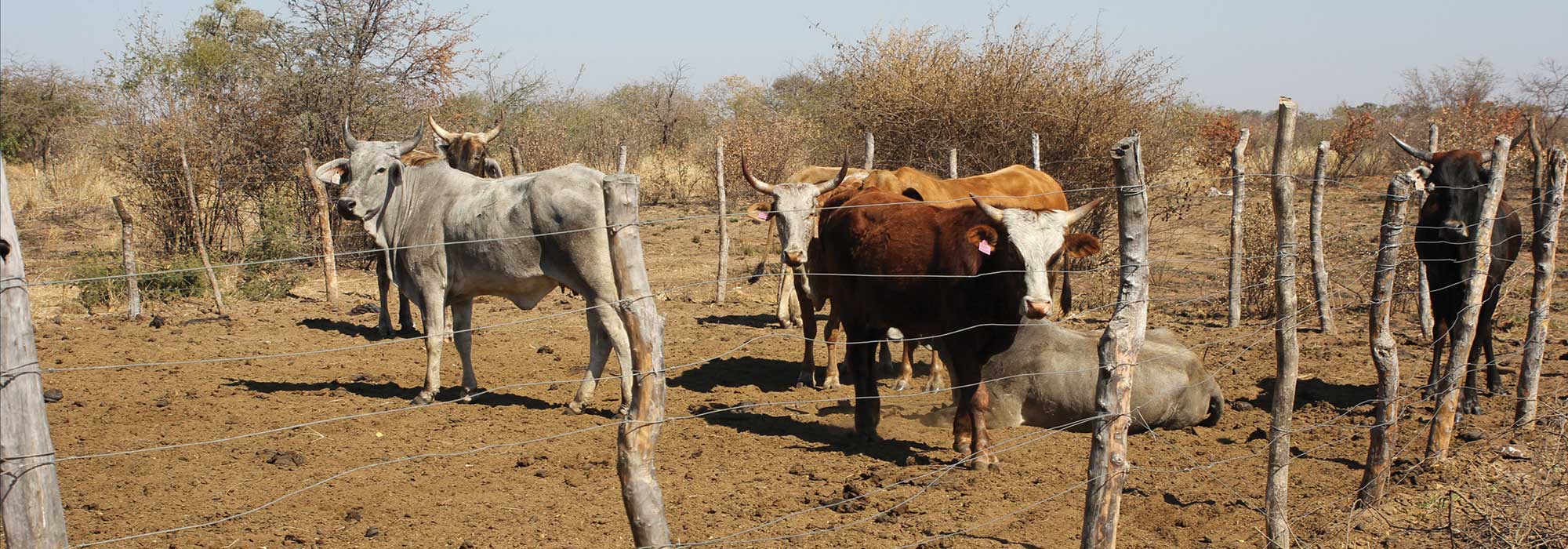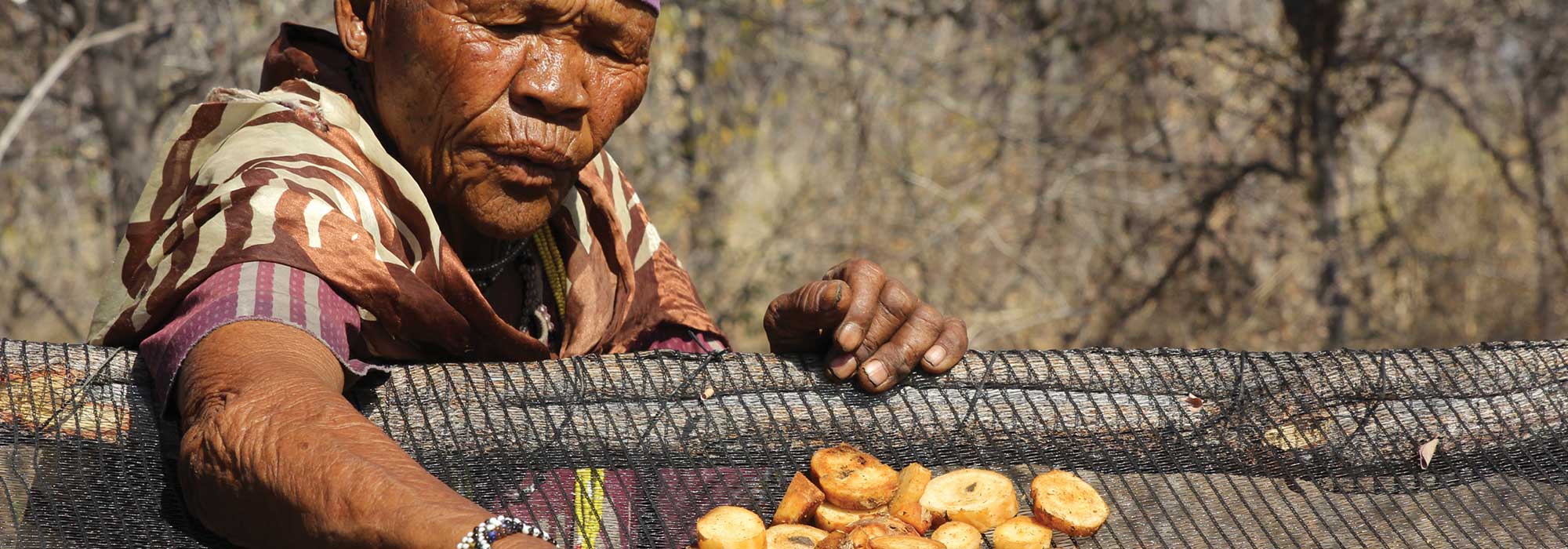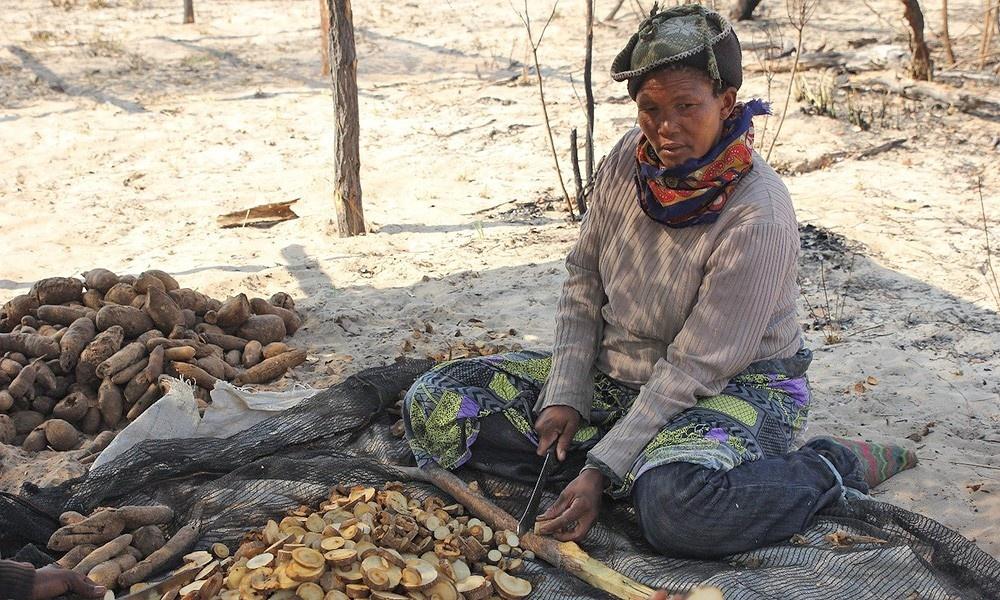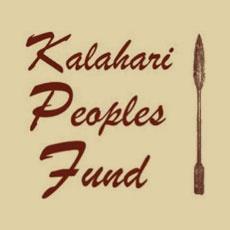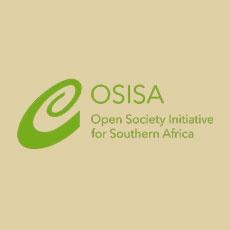Chief Tsamkxao ≠Oma
IUCN Save our Species fund supports San conservancies through difficult times
The impact of COVID 19 on the economy of Namibia is considerable. However, the impact on many poor rural communities, in particular communal conservancies in 2020, could be even greater. Especially in the Nyae Nyae and N#a Jaqna conservancies where the San communities reside. These communities are almost completely dependent on tourism and Trophy hunting for their income. This income generated benefits them in terms of jobs, wildlife management, livelihood projects and cash. There’s very little prospects for generating income from these sources in 2020. This may threaten the very fabric of the conservancies as people lose their only sources of income and possibly their jobs.
Conservancies are built and survive by generating benefits from tourism and wildlife management. Community based natural resource management (CBNRM) Rangers in both conservancies play a vital role in wildlife and natural resource management. One of the impacts of a lack of income to conservancies could mean Rangers salaries cannot be paid and as a result are unable to carry out their important work. The challenge for conservancies and their support organisations is how to maintain these critical services
Fortunately, the donor community has recognised the importance of the role that the CBNRM Rangers play. Nyae Nyae and N#a Jaqna Conservancies have received an International Union for Conservation of Nature (IUCN) Save our Species grant, funded by the European Union. The grant focuses on ‘Securing the livelihoods of Wildlife Rangers and for Indigenous San Conservancies in Namibia’ over the next 12 months. It will also pay the salaries of the CBNRM Rangers so that their critical wildlife patrols and monitoring the harvesting of organic Devils Claw can continue.
The harvesting and sale of Devil’s Claw represents a significant source of income for conservancy members and is one of the few income sources to survive the impact of COVID 19. During the first purchasing event in August this year approximately 230 harvesters earned N$ 500 000 from the sale of Devil’s Claw in Nyae Nyae. A second purchasing event, planned for October, could potentially earn harvesters anything from N$ 750,000-N$ 1 million during 2020. Although the conservancy only generates a small management fee from the sale of Devil’s Claw, the income direct to members is critical to enable the purchase of essential items such as food.
Along with support from the Ministry of Environment Forestry and Tourism (MEFT) it is expected that these conservancies will be able to maintain their basic functions of protecting their wildlife and providing benefits to their communities. At the same time the communities are encouraged to harvest Devil’s Claw sustainably as well as make the most of gardening and livestock projects which contribute to improving food security. The long-term ideal being more resilient and self-sustaining communities in the future.
The income lost during 2020 will never be regained, but with IUCN’s Save our Species grant and MEFT, the two San conservancies can focus on what is most critical in their areas.
When you subscribe to the blog, we will send you an e-mail when there are new updates on the site so you wouldn't miss them.
